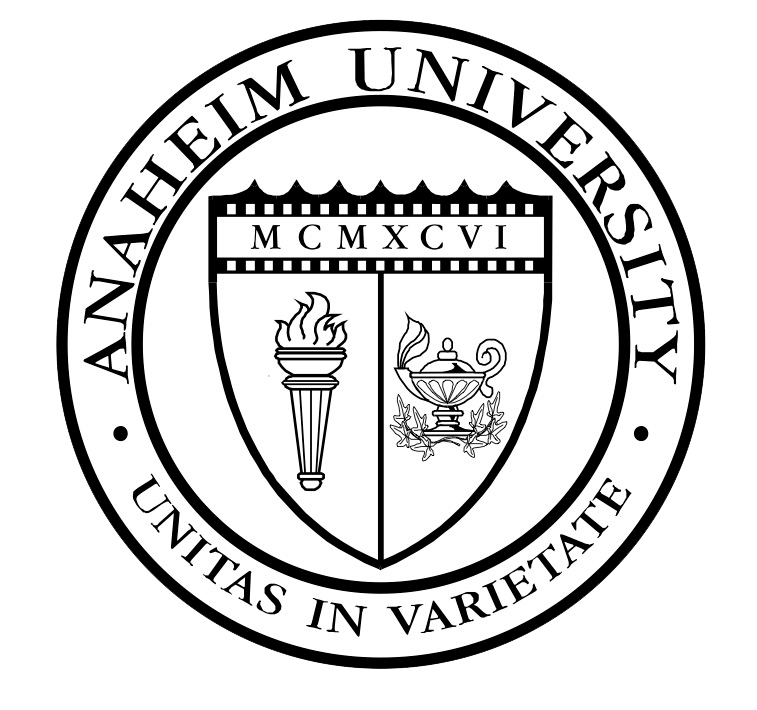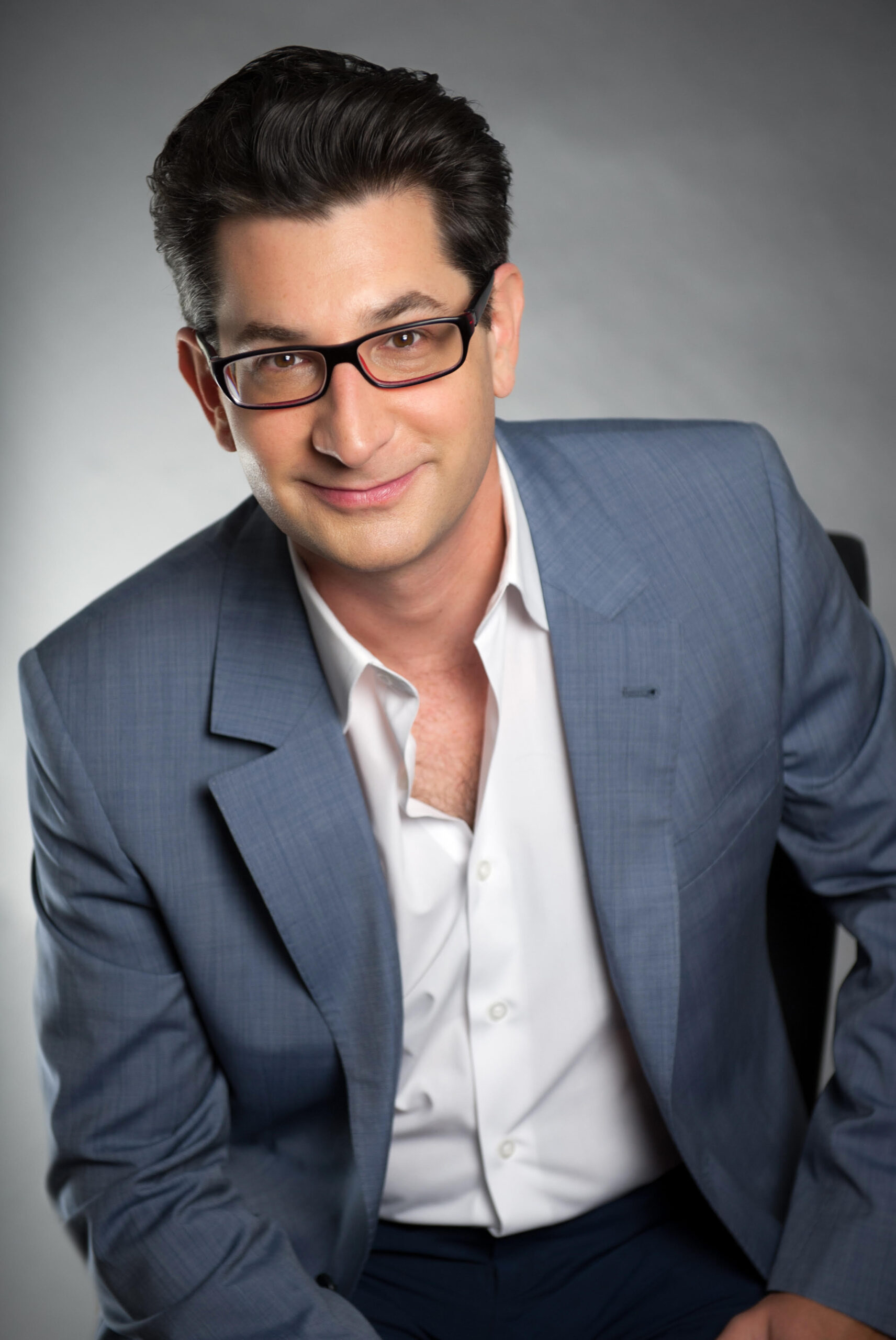
Live from Hollywood: President and Owner of Film Mode Entertainment, Clay Epstein
We would like to invite all Anaheim University students and alumni to attend our next Live from Hollywood guest speaker, President and Owner of Film Mode Entertainment, Clay Epstein, on Friday, Aug 27, 2021 from 7:00 – 8:00 PM California time (PST). Todd Olsson adds to Highland Film Group a unique perspective; studio and indie experience on both the creative development and production side, coupled with extensive experience in financing, international marketing and distribution. Holding a Fine Arts degree in Cinema from Brigham Young University, Todd began his career at the Walt Disney Company as Director of Acquisitions at BVHE, acquiring more than 100 titles and managing the studio’s Studio Ghibli deal. He then went into the world of independent film, working in international sales positions for such companies as Mark Damon’s MDP and Lakeshore Entertainment. https://docs.google.com/forms/d/e/1FAIpQLSf0Ta9bM-A8yqSJ3eaaL5Yk79U-UXrXoe16AC44oxzF2Px1vw/viewform Clay Epstein is the President and Owner of Film Mode Entertainment, a worldwide sales and distribution entity with a producer friendly initiative. The company has quickly become competitive with such films as CRYPTO starring Kurt Russel, LITTLE PINK HOUSE starring Catherine Keener and the upcoming SLAYERS starring Thomas Jane, Malin Ackerman and Abigail Breslin Clay Epstein began his career working as a Production Manager for local television before graduating from California State University, Northridge. He earned a Bachelor’s Degree in Fine Arts, majoring in Film Production and minoring in Italian Language. He landed his first job in Distribution with Kushner-Locke and worked his way from Production Assistant to Worldwide Sales Coordinator. In 2001, he was hired as Sales Director at Overseas Filmgroup. While there, he helped transition the sales division from Overseas Filmgroup to First Look Studios. He was promoted to Director of Operations and then Sales Executive where he oversaw the sales of 300 titles. In 2006, Clay joined the newly created sales and production company, The Little Film Company as VP Sales & Acquisitions. He helped grow the company into a leading boutique sales agency representing prestigious titles such as TSOTSI (2006, Academy Award Winner for Best Foreign Language), THE LAST STATION (2010, Academy Award Nominee for Best Performance by an Actress in a Leading Role) and EYE OF THE STORM (2012, AACTA Winner for Best Lead Actress). In 2012, Clay joined Arclight Films, as Senior Vice President Sales & Acquisitions responsible for all aspects of Marketing and Distribution. He was instrumental in acquiring and representing high profile films such as Paul Schrader ’s DOG EAT DOG starring Nicolas Cage, and the Spierig brothers’ PREDESTINATION starring Ethan Hawke. Clay is an Executive Producer, an instructor at UCLA Extension, and a frequent lecturer at film festivals worldwide. He is the Vice Chairperson of Independent Film and Television Alliance, a member of PGA, FIND, BAFTA LA, and the Australian Academy Cinema Television Arts.
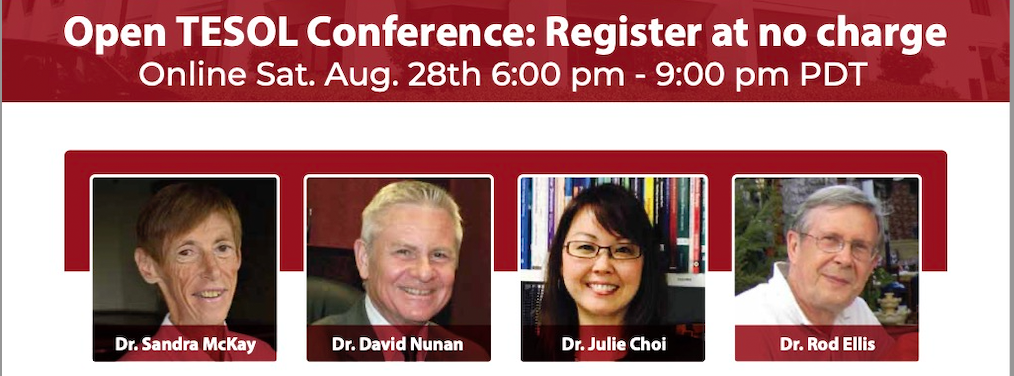
Open TESOL Conference & Anaheim University 2021 TESOL Residential Session
Anaheim University will hold an online Open TESOL Conference on Sat. Aug. 28th PDT open to the public at no charge. The Anaheim University 2021 TESOL Residential Session will be held online from Thursday, August 26th to Saturday, August 28th, 2021 PDT for Anaheim University TESOL students and graduates. AU TESOL graduates may register to attend up to 3 of the non-public sessions at no charge. To register for the Open TESOL Seminars, click here. The sessions will be led by Anaheim University’s distinguished TESOL faculty and guest speakers, including: Dr. Sandra McKay, Anaheim University TESOL Prof Dr. David Nunan, David Nunan TESOL Institute Director, founding Dean of the Anaheim University Graduate School of Education & former President of TESOL International Association Dr. Julie Choi, Anaheim University Alumnus & University of Melbourne Senior Lecturer in Education (Additional Languages) Dr. Rod Ellis, Anaheim University Senior TESOL Professor & Founding Department Chair The online residential session is part of Anaheim University’s online graduate degree programs in TESOL: Online Master of Arts in Teaching English to Speakers of Other Languages (MA in TESOL) Online Doctor of Education in Teaching English to Speakers of Other Languages (Ed.D. in TESOL) Tentative 3-Day Schedule (Subject to change) All times are Pacific Daylight Time (PDT). Click here for a World Time Converter. * Session Numbers 11, 12 & 13 in red are open to the public at no charge. Register here. Abstracts Inspiration, Motivation, Humiliation: Outstanding Teachers’ ReflectionsKathleen Bailey, Ph.D. Teachers influence learners in ways beyond promoting the mastery of skills and knowledge. Indeed, attitudes and emotions are also important part of the relationships among teachers and students. In this interactive presentation, we will explore the ways in which several award-winning teachers were inspired and motivated by their own teachers. But looking at the dark side of the past, we will also learn how their teachers humiliated and discouraged them. Participants will reflect on their own experiences and think about how they wish to be remembered by their future students. Value-Driven Research: Tips for Getting PublishedHayo Reinders, Ph.D. Click here for Bio In this informal presentation, I will look at the topic of getting published and – more broadly – at disseminating your work. I will start by looking at the many reasons (personal, professional, and academic) that teachers and academics have for sharing their research, observations, reflections and experiences with the wider community, and the range of possible ‘ outputs ’. I will review the broad range of platforms and channels available nowadays, from traditional anonymous peerreviewed journals, published teaching materials, practitioner-oriented forms of publishing, as well as less formal social networks. I will highlight some of the potential pitfalls and some strategies for choosing the most appropriate avenue for publishing your work. In the later part of the presentation, I will offer some ‘insider tips ’ to increase the chance of getting your work published. There will be plenty of opportunity to ask questions! The significance of the implicit vs the explicit distinction for language pedagogyRod Ellis, Ph.D. Click here for Bio This talk will begin by briefly examining the following distinctions: (1) implicit vs. explicit learning, (2) implicit vs. explicit knowledge and (3) implicit vs. explicit instruction. It will examine the significance of these distinctions for language pedagogy by addressing the following questions: How can teachers cater to ‘implicit learning’ in classroom instruction? How can teachers cater to ‘explicit learning’ in classroom instruction? What role does ‘explicit learning/ knowledge’ play in L2 learning? What constitutes an appropriate balance between implicit and explicit language instruction in a language curriculum? The talk concludes with examples of how ‘tasks’ can be used to construct a curriculum that maximises opportunities for students to develop their implicit and explicit knowledge of a second/foreign language in a classroom context. Being a ‘Good’ Leader (in Language Education): “How Hard Can It Be?”Andy Curtis, Ph.D. Click here for Bio That question became one of the recurring themes during the recent AU Ed.D. EDU 720 course, Leadership and Management in Language Education. And the answer to that particular question turned out to be: It can be extremely hard to be a ‘good’ leader/manager in language education, for a whole host of reasons, some of which are under the individual’s control, but many of which are not. And in terms of language educators being reflective practitioners (as we all are supposed to be these days) due to the highly compacted and intense nature of our Ed.D. courses, the time for in-depth reflection must often wait until the course has ended. In that sense, and perhaps somewhat paradoxically, the deepest levels of long-term learning may begin in earnest when the course ends. Therefore, in this presentation I will review the 100,000-plus words of EDU 720 written discussion, in the 500-plus Discussion Board postings, the 12 hours of live/real-time online classes, the assessments and the assignments, as well as primary questionnaire and interview data from leaders in different countries, to highlight some of the main leadership learning points that we hope will last long after the course itself has become a distant memory. In this talk, we will also be connecting the learning points from our EDU 720 course with a new book, which brings together, for the first time, three centuries of lived language education leadership experience: Reflecting on Leadership in Language Education (Curtis, January 2022, Equinox Publishing: https://www.equinoxpub.com) Making connections: Public memory and language teachingJohn Macalister, Ph.D. Click here for Bio If you travel around New Zealand, my home country, you will find memories of past wars evoked in cities and towns, in rural areas, even in what appears to be the middle of nowhere. These ‘memory places’ are not, of course, unique to New Zealand. They are found throughout the world, and can take many forms, such as museums, monuments, and memorials. Nor are all memory places evoking past conflicts. They are all, however, places that shape public memory. In the shaping of public memory, these memory places draw on different semiotic resources, including language. As a result, they can be
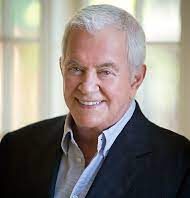
Live from Hollywood: Foresight Unlimited Chairman & Film Producer Mark Damon
We would like to invite all Anaheim University students and alumni to attend our next Live from Hollywood guest speaker, Producer and Chairman of Foresight Unlimited Mark Damon, on Friday, August 20, 2021 from 6:00 – 7:00 PM California time (PST). Credited with having invented the foreign sales business as we know it today, Mark Damon is one of the world’s leading international film distribution authorities. His film productions have grossed over $2 billion in theatrical box office worldwide over the past 25 years. He has been involved in the international licensing of over 300 feature films and has produced over 70 films, with Monster (2005 Academy Award Winner), Das Boot and The NeverEnding Story receiving 10 Oscar nominations. He founded the Producer Sales Organization and is an original founding member of the American Film Marketing Association, now known as the International Film and Television Alliance (IFTA). We would love to have you join us for this special event. Please RSVP by clicking the link below and we can send you the access information for the session. Please also review the attached bio and bring your questions for this special session. https://docs.google.com/forms/d/e/1FAIpQLSf0Ta9bM-A8yqSJ3eaaL5Yk79U-UXrXoe16AC44oxzF2Px1vw/viewform
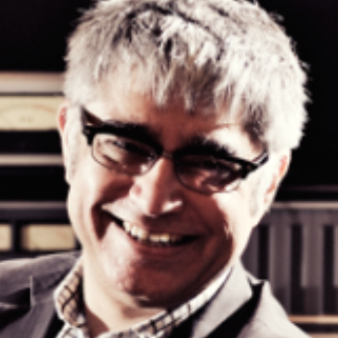
Live from Hollywood: Discovery Networks AP Head of Production Vikram Channa
Anaheim University is excited to announce that we will be hosting Discovery Networks Asia Pacific Head of Production Vikram Channa on Friday, August 13th from 5:00 pm – 6:00 pm California time. All Anaheim University students and alumni are invited to join us for this special event. Please RSVP by clicking the link below and we can send you the acce ss information for the session. Please also review the bio below and bring your questions for this special Q&A session. https://docs.google.com/forms/d/e/1FAIpQLScq9NvIJ1ciOX6bdco101se9YUUn1D_JSKcfrEeLZYJrEa5wA/viewform Vikram Channa, MBA, MA, Master’s in Film & Television Production Discovery Networks Asia Pacific Head of Production Vikram Channa serves as Associate Dean of the Anaheim University Akira Kurosawa School of Film. Vikram, who in addition to having a Master’s in Film and Television Production and a Master’s in History, earned his MBA from the University of Chicago and brings strategic thinking to the film set and innovation to the classroom. At Discovery Networks Asia-Pacific, he is responsible for the production of all original Discovery content out of Asia-Pacific. Based in Singapore, he works closely with Discovery Networks Asia-Pacific’s (DNAP) senior management and country heads to provide editorial direction. Vikram and his team produce approximately 100 hours of programming every year across DNAP’s portfolio of eight channel brands. Vikram first joined Discovery in 1995. He has taken on various roles within the company from on-air promotions to programming and production. Together with his team, he executive produced over 500 documentaries, several of which garnered accolades at events such as the Asia Television Awards, New York Festival, Omni Intermedia, and the Academy Awards. Vikram began his working career in India as an independent producer of short films.
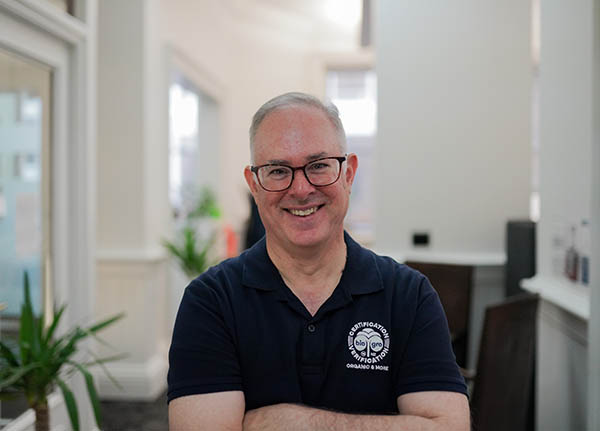
Anaheim University Spotlight: Donald Nordeng – Green MBA Alumnus 2010
Donald Nordeng graduated from Anaheim University’s Master of Business Administration degree program in Global Sustainable Management in 2010. During this time, he was the Managing Director for Ecocert Japan Ltd., the largest sustainable development carrier in the world. Nordeng later moved with his family to New Zealand to take on the role of Chief Executive Officer of BioGro New Zealand Ltd. and Deputy Chair of the Organic Exporters Association of New Zealand. He is now recognized as an expert authority in helping companies refine and grow their business organically. Fast forward: Nordeng is now sharing his expertise in organic certification in his self-published book, Organic to the Core: Transform Your Business with the 6 Principles of Organic Certification. He recently launched a website at speakingorganic.com Born in Madison, Wisconsin, he has dedicated over 25 years of service to help CEOs achieve organic certification and access foreign markets. Donald has lived and worked in Japan, New Zealand and other parts of Asia and is a recognized expert authority in organic certification. His 6 key principles to help companies refine and grow their businesses organically has helped many internationally known brands such as Amy’s Kitchen, Muir Glen, Kikkoman, and Suntory. He lives with his family in Wellington, New Zealand.
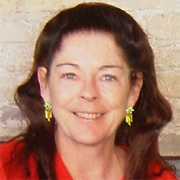
アナハイム大学ビジネス教授陣のご紹介:キャリン・キャラハン教授
アナハイム大学オンラインビジネスプログラム(MBA, Doctor of Business Administration, Master of Entrepreneurship)で活躍する教授陣をご紹介いたします。 キャリン・キャラハン教授(Dr. Caryn Callahan) カリフォルニア大学ロサンゼルス校(UCLA)にて財務会計(Finance-Accounting)を専攻し、MBAを取得。ハーバード大学で東アジア言語文化学(特に日本関連を専攻)における博士号(Ph.D.)を取得。卒業後は株のアナリストとしてメリルリンチ・ジャパンで活躍。同社副社長を務めた。そのほか、W.R.グレース・アンド・カンパニーにてファイナンシャルアナリストとして勤務。シャミネード大学(ハワイ)にてコーポレート・ファイナンス、インターナショナル・ビジネス、マネジメントなどを教えた経歴を持つ。また、「Euromoney」誌に日本の家電産業のアナリストとして第1位に選出されたほか、ニューヨーク・タイムズやウォール・ストリート・ジャーナル、フォーチュン誌等の一流誌に専門家としてコメントが掲載された実績を持つ。アナハイム大学では主にMBAプログラムのファイナンスやアカウンティングのコースを教える。
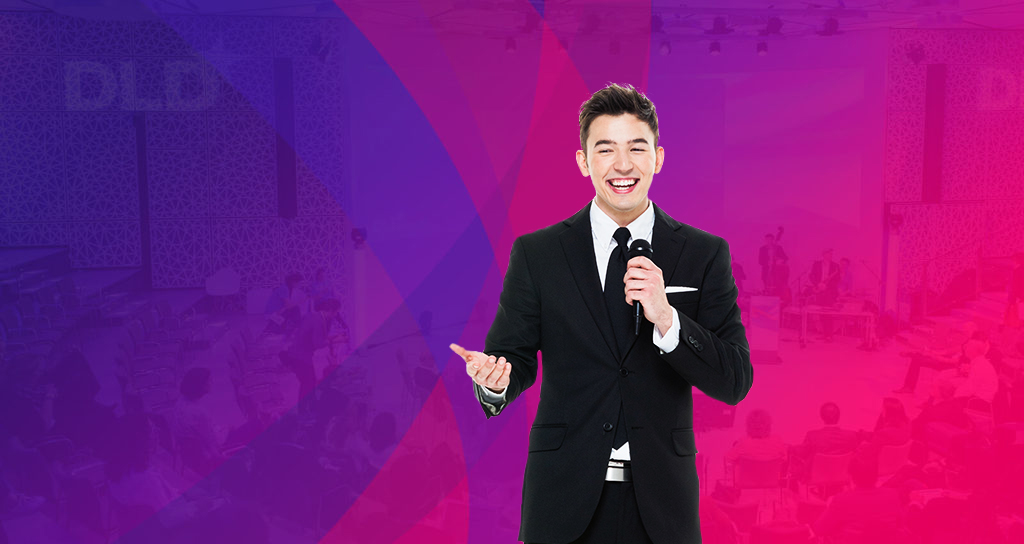
Anaheim University Supports the 2021 California Youth Leadership Summit
Anaheim University Supports the 2021 California Youth Leadership Summit Anaheim University is proud to be a sponsor of the 2021 California Youth Leadership Summit. presented by Sister Cities International. This online event will be led by youth and young professionals for youth and young professionals. The theme of this event is Peace, Kindness & Cooperation, and will include panel topics selected by youth on Climate Change & Sustainability World Peace & Cooperation Racial Equality & Gender Equity Coping with the Pandemic The online event will take place on February 6, 2021 at 2:00 PM California time. Please visit www.californiasummit.org to register for the event. Founded by President Dwight D. Eisenhower in 1956, Sister Cities International is a nonpartisan 501(c)(3) nonprofit which serves as the national membership organization for individual sister cities, counties, and states across the United States. This network unites tens of thousands of citizen diplomats and volunteers in nearly 500 member communities with over 2,000 partnerships in more than 140 countries. For more information about Sister Cities International, please visit www.sistercities.org Anaheim University looks forward to seeing you at the 2021 California Youth Leadership Summit!
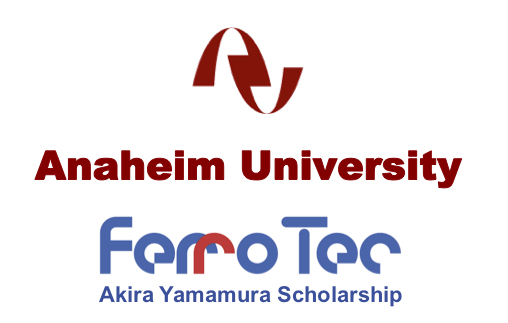
Full MBA Scholarships: Apply by March 20, 2021
Anaheim University Ferrotec Akira Yamamura Scholarship 2 students can earn a full scholarship towards an Anaheim University online Master of Business Administration (MBA) degree program Applicants can apply the scholarship to 1 of these 3 online degree programs: Online International MBA Online MBA in Global Sustainable Management Online Master of Entrepreneurship Applicants must meet Anaheim University’s MBA entrance requirements. Applicants must express an interest in being considered for future employment by Ferrotec. However, being awarded a scholarship does not guarantee that an offer of employment will be made to the scholarship recipient. Applicants with Heat Transfer, Physics, Chemical Engineering, Mechanical Engineering, International Business / bilingual (English + 1 other language) language skills/experience will be given preferential consideration. Scholarships will be awarded on a merit basis based on the applicant’s qualifications. Applicants must maintain standards set forth by the Scholarship Committee and/or the University’s administration in order to remain in good standing and continue to receive the scholarship funding throughout the remainder of their program. Scholarship recipients are expected to maintain a minimum of a B average at all times and complete each course with a minimum of a 3.0 grade. Scholarship recipients must also remain continuously enrolled from the commencement of their program through graduation. Skipped term fees are not included in the scholarship and skipped terms are only allowed with special permission from the University’s Dean. Scholarship Application Requirements Scholarship Applicants must submit: – standard application materials required for an Anaheim University online MBA or Master of Entrepreneurship program. Click here for a list of program entrance requirements. – a 1,000 word essay outlining: How you feel the Anaheim University degree will benefit you Why you would like to be considered for possible employment by Ferrotec upon graduation Your area of academic and professional specialization To Apply: Click here to complete the online application form. E-mail 1,000-word scholarship application essay to ausupport @ anaheim.edu Application Deadline March 19, 2021 Scholarship Recipients Announced April 16, 2021: Applications are being reviewed and will be announced within 10 business days MBA Program Start Date May 10, 2021 About Ferrotec Founded in 1980, Ferrotec is headquartered in Tokyo, Japan with locations in Japan, U.S.A., China, South Korea, Taiwan, Malaysia, Singapore, Germany, Spain, France, Italy, and Russia. Ferrotec is a diversified technology company with a worldwide presence in a broad array of end products, manufacturing systems, and industries. Ferrotec provides its customers with advanced material, component, and assembly solutions that make their products work better, more precisely, and more reliably. Founded on a technology core of Ferrofluid magnetic liquid and Ferrofluidic® sealing products, the company and its product portfolio have grown to meet the evolving needs of its customers. Ferrotec is now a global enterprise characterized by substantial intercompany cooperation in research, manufacturing and marketing of products. The Ferrotec Group contributes to society as a manufacturer, and a company whose progress brings joy to its customers, shareholders, employees, business partners, the community, and all of its stakeholders. Ferrotec has grown to what it is today through the pioneering and innovative spirit of its President and Representative Director Dr. Akira Yamamura About Dr. Akira Yamamura Dr. Akira Yamamura, who is an Executive Advisory Board member of Anaheim University, established Ferrotec with two people in 1980. At the time, he was president of the Japanese subsidiary of Ferrofluidics Corporation, after joining the company as an engineer. In 1987, he led a management buy-out of the company and then in 1999 acquired the former parent company. Dr. Yamamura has grown Ferrotec to become one of the most important companies in the electronics industry, with annual revenue growing to approximately US$680 million, 27 subsidiaries and more than 5,400 employees in Japan, the US, Europe and Asia. The original business of the company was distributing Vacuum Feedthrough, which applies Ferrofluid, magnetic field. Vacuum Feed-through is a key component to shield the vacuum environment, and utilized in semiconductor equipment, single crystal silicon ingot grower, FPD equipment, and thin film equipment for photovoltaic application. In 2012, Dr. Akira Yamamura was ranked #24 in Ernst & Young’s “World Entrepreneur of the Year” awards. Click here to learn more about Ferrotec

2020 Anaheim University TESOL Residential Session & MECA
Anaheim University will hold a virtual 2020 TESOL Residential Session from Thursday, August 27th to Saturday, August 29th, 2020. Anaheim University’s M.A. and Ed.D. in TESOL students from around the world will join sessions related to “Adaptability in TESOL“. Certain sessions will be made open to the public. There is no charge to attend open sessions. However, registration is required. To register for the Open TESOL Seminars, click here. The sessions will be led by Anaheim University’s distinguished TESOL faculty and guest speakers, including: Dr. David Nunan, David Nunan TESOL Institute Director, founding Dean of the Anaheim University Graduate School of Education & former President of TESOL International Association Dr. Rod Ellis, Anaheim University Senior TESOL Professor & Founding Department Chair Dr. Luke Plonsky, Anaheim University Graduate TESOL Director Dr. Hayo Reinders, Anaheim University Graduate School of Education Chair of Research Dr. Kathleen Bailey, former President of TESOL Dr. Brian Tomlinson, Anaheim University TESOL Prof & Materials specialist Dr. Andy Curtis, Anaheim University TESOL Prof & former President of TESOL Dr. Ken Beatty, Anaheim University TESOL Prof Dr. Jo Mynard, Anaheim University TESOL Prof Dr. Masatoshi Sato, Anaheim University Associate TESOL Prof Dr. Shartriya Collier, Nevada State College School of Education Associate Dean Dr. Sandra McKay, Anaheim University TESOL Prof Dr. Julie Choi, Anaheim University Alumnus & University of Melbourne Senior Lecturer in Education (Additional Languages) Dr. Tamara Myatt, Anaheim University Akio Morita School of Business Prof Dr. Raphael Raphael, Anaheim University Akira Kurosawa School of Film Professor Dr. Vivian Bussinguer-Khavari, Anaheim University Assistant TESOL Prof These workshops are part of Anaheim University’s online graduate degree programs in TESOL: Online Master of Arts in Teaching English to Speakers of Other Languages (MA in TESOL) Online Doctor of Education in Teaching English to Speakers of Other Languages (Ed.D. in TESOL) To register for the Open TESOL Seminars, click here. Tentative 3-Day Schedule (Subject to change) All times are Pacific Daylight Time (PDT). Click here for a World Time Converter. * Session Numbers 3, 4, 7, 8, 12, 13 & 14 in red are open to the public Abstracts Then Came COVID: Adapting TESOL for a Post-Pandemic World Andy Curtis, Ph.D.: Click here for Bio Before embarking on a career in applied linguistics and language education, I worked for some years in hospitals in England, as a Medical Science Officer, primarily in the areas of obstetrics, gynaecology and pediatrics. As part of my training, we had to read Charles Darwin’s 1859 book, On the Origin of Species, in which he discusses the importance of Biological Adaptability. Because of my life sciences background, I start by approaching the notion of Adaptability from a Darwinian perspective. Combining my life science professional origins with my later-in-life career in language education, I noticed that one of the mis-used phrases from Darwin was “survival of the fittest”. In Nazi Germany, that phrase was taken to mean that the strongest would survive, while the weakest would die. However, what Darwin meant was that those plants and animals that are the most adaptable to changes in their environment will thrive. Fast forward around 160 years, and we are now all living through the experience of a global pandemic, the first for more than a century, which has led to renewed interest in Darwin’s work. In this workshop, we will, then, consider what we mean by Adaptability, in relation to TESOL, today and in the years to come. Adaptability of Research to the Classroom Masatoshi Sato, Ph.D. Click here for Bio Adaptability of L2 research to the classroom has been an issue since the 1990s. Despite researchers’ hope, practitioners rarely see the way in which empirical findings are effectively used in their classes. The central question is: “Is research really useful for teaching?” In this talk, I first discuss the current issues related to the research-pedagogy link. I will then focus on studies designed to make L2 theories more relevant to classroom teaching. Specifically, I will tap into learner psychology (e.g., L2 motivation, willingness to communicate, and metacognition) and how this research can be meaningfully used in the classroom. The talk includes some activities of adapting research findings to pedagogical technique. Supporting Language Learners Beyond the Classroom: Theory and Practice Jo Mynard, Ph.D. Click here for Bio Classroom instruction for language education is only one part of the language learning experience, and in this talk I would like to move away from the classroom and focus specifically on ways in which we can support learners outside the classroom. This kind of support, often known as self-access language learning (SALL), can take several forms, for example: providing materials, spaces, and facilities for learning; ensuring access to communities of TL speakers; offering language support and practice opportunities; and providing targeted support for individual learners through advising. SALL spans five decades and has seen many changes as we have learned more about how people learn languages and have drawn on different theoretical trends. This talk will touch briefly on how the field is shifting, and look at examples of SALL in practice. As we will see, it is important to ensure that we are supporting language development and also the development of language learner autonomy. Theory, Research and Practice in Language Teaching and Learning David Nunan, Ph.D. Click here for Bio This presentation will cover: What do we mean by ‘theory’ and ‘research’?; research paradigms: positivist and naturalistic research; research procedures; three traditions in language learning theory, research and practice: behaviourism, innatist/cognitivist approaches, socio-constructivism; and pedagogical applications of socio-constructivism: a closer look Social Identity and Language Development in Study Abroad Rod Ellis, Ph.D. Click here for Bio Study abroad constitutes an ideal context for investigating the relationship between second language learners’ social identities and their language development. Two broad but not distinct phases in study abroad research can be distinguished corresponding to before and after the advent of the social turn in second language acquisition studies. The earlier phase was predominantly concerned with documenting the L2 development and whether and in what ways L2 development in study abroad learners differed from stay-at-home classroom learners. The later phase
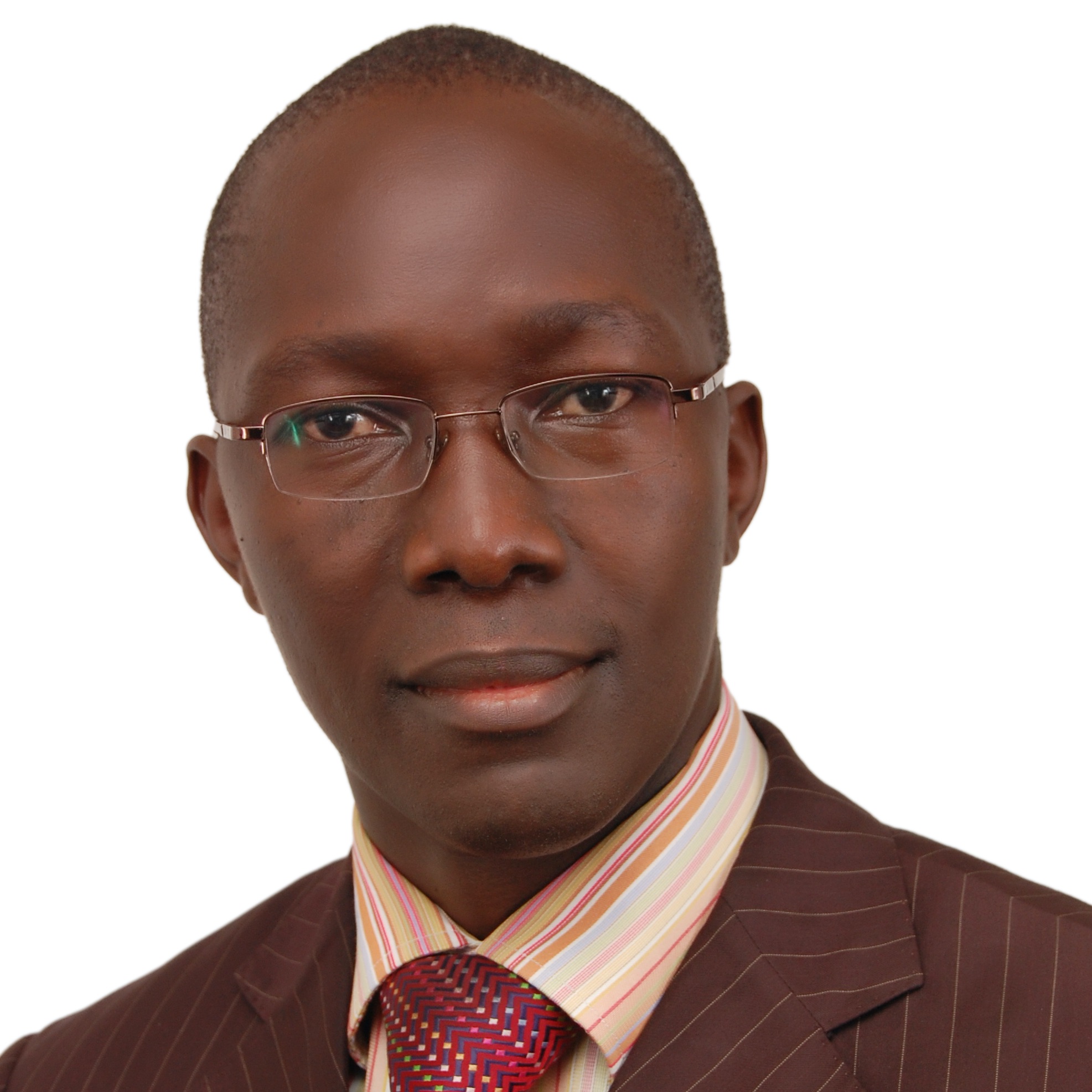
Master of Entrepreneurship Graduate Interview – Clayton Mwaka
Clayton Mwaka, ME, CPA-U Director Clayton & Company 1) Why did you choose Anaheim University? I must say that I came across Anaheim University much later during my search, after spending several weeks considering options and even writing to some Universities, before making a decision. I had been considering doing a Master in Entrepreneurship for about two years before but had not gotten around to making a decision. The focused search commenced after I made a decision to proceed with the program. Principally, I found Anaheim fees affordable in light of several issues, and the online approach also could enable me to study from whichever part of the world I was in. The profiles of the faculty also greatly impressed me. 2) Can you tell us briefly about your career? I have been working in various roles for the last 27 years, since 1992, when I concluded my Bachelor of Commerce degree (specializing in accounting), at Makerere University in Kampala. I later studied ACCA (which I did entirely with home study without a single lecture) and became a Fellow of the Association of Chartered Certified Accountants (FCCA), and also a Certified Public Accountant of Uganda (CPA-U). The Anaheim ME program followed my M.Sc in Professional Accounting with University of London. I began my career as an accountant, and later worked in positions such as Group Accountant, Principal Internal Auditor, Financial Controller, Managing Partner (in external audit and consulting), and Finance Director/Chief Financial Officer. My work history has covered industries such as chemicals and pharmaceuticals, food (FMCG) and animal feeds, building and construction (steel industry), external audit and consulting, and commodities (coffee). I worked in several Groups of companies in Uganda, and also did expatriate assignments in Nigeria and Tanzania. Beyond my core accountancy profession, I’m also a Certified Business Mentor under ACCA, Youth Business International (YBI) and Enterprise Uganda partnership, and in that I mentored a few young entrepreneurs. I have also written and published two books so far. I enjoy tapping from great minds of other people through reading books. I enjoy doing several things beyond core accounting, since I like developing capacity in people and organizations. I thrive in challenging and multi-tasking environments that provide solutions and change, so in reality my career and activities go way beyond professional accounting. I sometimes find pure accounting boring, but I’m not a boring accountant. 3) Why did you choose to earn a ME? I have always believed that entrepreneurship can provide various solutions to the challenges of humanity; hence my keen interest in it. That partly resulted into the book entitled ‘The Wise Entrepreneur’ which I published several years back (available on Amazon), and also blogging on various entrepreneurship issues. I have also been involved in several start-ups and mentoring young entrepreneurs as mentioned earlier. The Anaheim ME to me was like sharpening my skills further: to be able to add more value to entrepreneurship globally, whilst also positively impacting other enterprises and entrepreneurs generally towards creating value as well as having better societies and providing solutions to some of the challenges of humanity. 4) What do you like best about the program? The ease of accessing various professors running the courses was a big plus for me. Other things I liked included interfacing with globally renowned experts and leaders (non-academic) arranged occasionally by the University for the Real-time Meetings, the very engaging and continuous online discussions amongst students and professors with various perspectives, and the global diversity amongst students attending the program. 5) What was your favorite course from the program? I particularly enjoyed Entrepreneurial Innovation (ENT 500), in which we formed teams for a simulation exercise we did for several weeks, managing a carbon bike business globally. Due to the small class, our team comprised only two of us, Junie Djamen (an origin of West Africa who migrated to the US) and me, based in Uganda. This online exercise involved making real business decisions spanning the entire business, such as business strategy, product design and manufacturing, selling and distribution, financing, human capital etc. I found this very useful because it enables students to understand and appreciate practical and real world business issues. We made use of logical decision making, feedback from the market, and synchronization of our decisions to dominate the market for three weeks (equivalent to 3 years) out of the six weeks, but also learnt very hard lessons by underestimating our competitors’ potential to adapt and fight back, which made us lose significant market share during the last (sixth) week. We did not have the opportunity to make a powerful comeback as the exercise ended (to my disappointment). Another very interesting thing in this program was the study of Hybrid organizations such as Grameen Danone Foods Ltd. (a Social Business), Sanergy: Tackling Sanitation in Kenyan Slums, among others. Some of these social enterprises are a notch higher in addressing social problems, compared to the common CSR phrases and activities we see around. 6) How do you balance the time required to study while working full-time? This is not an easy thing, and I’m sure everyone faces some challenges. Oftentimes I could study in the middle of the night during working days, and also for many hours over weekends, to catch up with the pace of study and also doing weekly assignments on time. I did not see any easier way to handle this other than sacrificing more time. I also got used to working and doing academic reading while travelling by road and air. Oftentimes transit time at airports was very useful time to catch up with some assignments. 7) Do you feel you were part of a learning community? Absolutely! The online academic community was quite engaging and I loved the online discussions on various topics. The professors were also actively participating in these online activities and I found this very valuable. Moreover, having at least two online meetings with our professors, each lasting at least an hour, sometimes with very distinguished guests from
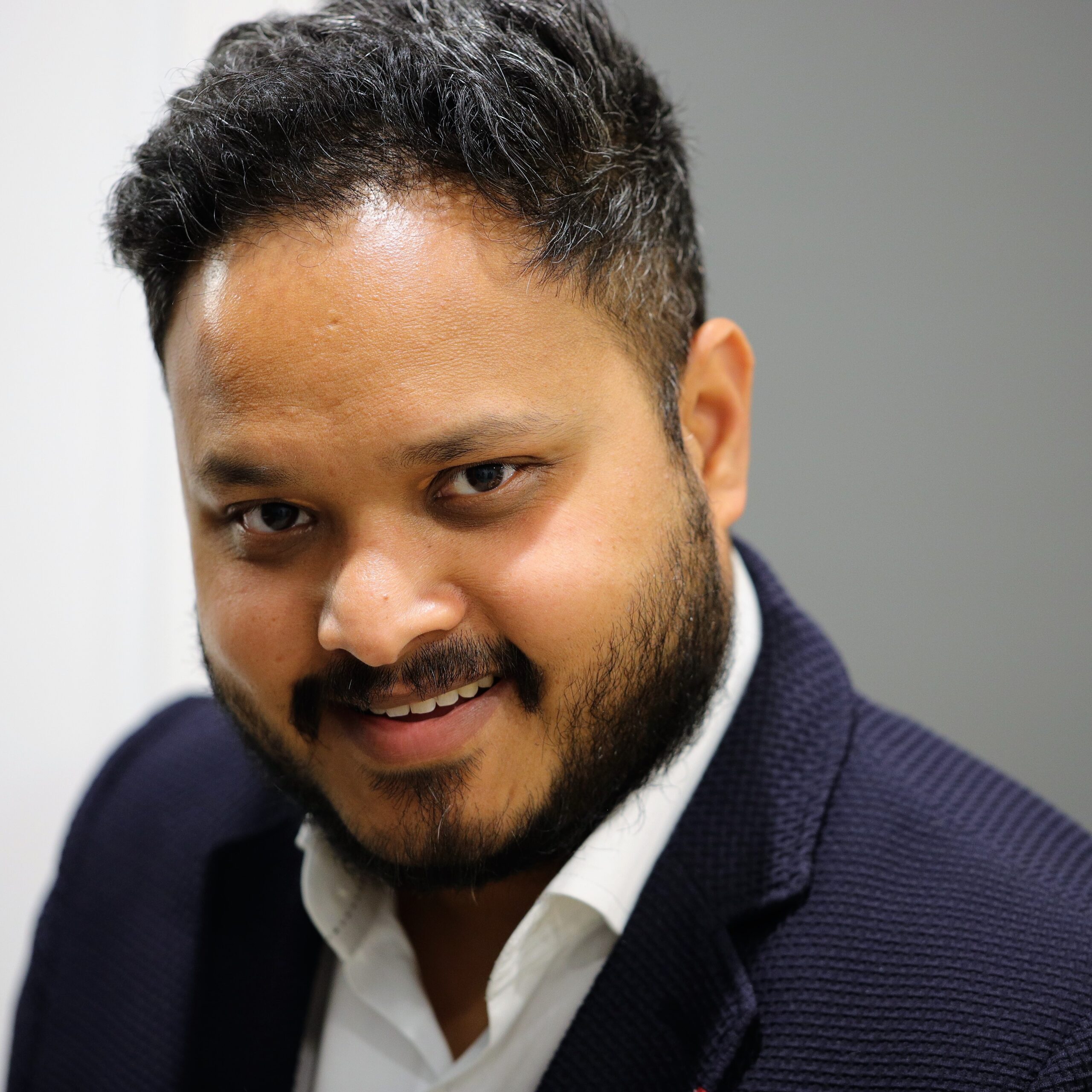
MBA in Global Sustainable Management Graduate Interview – Amit Pattnaik
Amit Pattnaik Senior Business Development Officer Informit RMIT (Royal Melbourne Institute of Technology) University 1) Why did you choose Anaheim University? Anaheim University was an obvious choice for me as they were the only one who were in the sweet spot of affordability, flexibility (being completely online) and most importantly offering a MBA in Sustainable Management. I didn’t want to do just another generic business degree as I already had a master’s degree in international business and was aware of the traditional business concepts. I was looking to learn more about how the social and environmental aspects work together with business and hence I chose the Green MBA from Anaheim University. 2) Can you tell us briefly about your career? I have worked in the knowledge industry since 2010 and have been in various managerial positions in both for-profit and not-for-profit organisations. I currently work at informit – a business unit of the prestigious RMIT University in Melbourne, where I look after the digital library resources. These resources span from journals and databases to training assets used in teaching and learning throughout Australian universities, colleges, and government institutions. I have always been passionate about teaching and learning, and I believe that if we can change how we teach today, we can change how we will be treated tomorrow. 3) Why did you choose to earn a Green MBA? I opted for a Green MBA because I believe that it is tomorrow’s MBA, which prepares you as a business professional for the next generation. While a traditional MBA degree provides you with a thorough understanding on business concepts like finance, accounting, marketing and management, it fails to touch on the real soul of business, which is to create value on three fronts of profit, people and the planet. This sustainable approach towards business is what attracted me towards the Green MBA, where all the traditional concepts were examined and debated from a social and environmental lens. 4) What do you like best about the program? There are many things which I loved. Firstly, the content which was delivered mostly faultlessly through the Learning Management System (LMS). Secondly, the educators, most of whom had several years of experience in both the industry and in academia. Thirdly, my peers who were working professionals like me from all over the world. Finally, and perhaps the best feature for me – the flexibility which allowed me to complete my course while working full time. 5) What was your favorite course from the program? I had a few that I enjoyed learning about, but my pick of the lot will have to be “BUS 535 Triple Bottom Line Accountability and Management”, with “Social Entrepreneurship Strategy” coming in a close second. The thing about Triple Bottom Line Accountability is that it talks about the balance of profit, people, and planet. We have long been taught that profit is good as it alone is the answer to improving all other issues in our communities and the environment. Therefore we should pursue it at all and any cost, and this is where understanding the correlation between the 3-Ps is so crucial for all future business leaders. 6) How is the experience studying online? It was my first time doing a fully online course and I enjoyed the online studying experience. The learning management system was clean and very easy to understand and navigate with weekly tasks laid out at the start of every unit. It helped me immensely in juggling study and work by allowing me to study from anywhere and at any time. 7) How do you balance the time required to study while working full-time? This was truly challenging, but then nothing substantial in life comes easy. Thinking about it in hindsight, I wouldn’t have had it any other way as the satisfaction that followed upon completion was unparalleled. One thing that helped immensely was that I had the best study partner in Stephen Mason, and we both shared the planning responsibilities. Stephen prepared a thorough study guide in the first couple of days of the course being live and we followed it throughout the length of the course. We knew exactly when a paper was due, when readings were due and when to setup team meetings for group assignments. This kept me organised through my entire MBA journey. I used to stipulate at least an hour every day after work to do some reading and research and did most of the heavy lifting of writing assignments and projects on weekends. One of the areas that was affected the most was my social interactions, but I can say now that it was all worth it in the end. 8) Do you feel you were part of a learning community? Yes, very much so. I always made the effort to know my class mates from all around the world and had discussions on various concepts throughout the course. I also loved the online guest lectures (one of the highlights) conducted by reputed industry professionals and thought leaders. 9) What was the most unusual location you joined an online class or discussion forum from so far? It was from an airport lounge in Singapore while I was on my way to attend our annual sales conference in Bangkok in January 2018. I remember finding a quiet corner in the lounge and using the airport Wi-Fi to login to our online class. I had to carry my laptop in my hand all the way to the boarding gate to maximize my participation. Although not ideal it sure was memorable. Apart from this, I have written assignments and attended online classes from hotel rooms after client meetings and while I was traveling in Europe in April 2018. My most beautiful location was overlooking the snow-covered mountains at the Hallstatt lake in Austria. 10) What would you say to someone who is hesitant about studying online? Studying online is fun! It’s not always easy as there will be technical difficulties if

Full MBA Scholarships: Apply by March 20, 2020
Anaheim University Ferrotec Akira Yamamura Scholarship 2 students can earn a full scholarship towards an Anaheim University online Master of Business Administration (MBA) degree program Applicants can apply the scholarship to 1 of these 3 online degree programs: Online International MBA Online MBA in Global Sustainable Management Online Master of Entrepreneurship Applicants must meet Anaheim University’s MBA entrance requirements. Applicants must express an interest in being considered for future employment by Ferrotec. However, being awarded a scholarship does not guarantee that an offer of employment will be made to the scholarship recipient. Applicants with Heat Transfer, Physics, Chemical Engineering, Mechanical Engineering, International Business / bilingual (English + 1 other language) language skills/experience will be given preferential consideration. Scholarships will be awarded on a merit basis based on the applicant’s qualifications. Applicants must maintain standards set forth by the Scholarship Committee and/or the University’s administration in order to remain in good standing and continue to receive the scholarship funding throughout the remainder of their program. Scholarship recipients are expected to maintain a minimum of a B average at all times and complete each course with a minimum of a 3.0 grade. Scholarship recipients must also remain continuously enrolled from the commencement of their program through graduation. Skipped terms are only allowed with special permission from the University’s Dean. Scholarship Application Requirements Scholarship Applicants must submit: – standard application materials required for an Anaheim University online MBA or Master of Entrepreneurship program. Click here for a list of program entrance requirements. – a 1,000 word essay outlining: How you feel the Anaheim University degree will benefit you Why you would like to be considered for possible employment by Ferrotec upon graduation Your area of academic and professional specialization To Apply: Click here to complete the online application form. E-mail 1,000-word scholarship application essay to ausupport @ anaheim.edu Application Deadline March 20, 2020 Scholarship Recipients Announced April 17, 2020: Applications are being reviewed and will be announced within 10 business days MBA Program Start Date May 11, 2019 About Ferrotec Founded in 1980, Ferrotec is headquartered in Tokyo, Japan with locations in Japan, U.S.A., China, South Korea, Taiwan, Malaysia, Singapore, Germany, Spain, France, Italy, and Russia. Ferrotec is a diversified technology company with a worldwide presence in a broad array of end products, manufacturing systems, and industries. Ferrotec provides its customers with advanced material, component, and assembly solutions that make their products work better, more precisely, and more reliably. Founded on a technology core of Ferrofluid magnetic liquid and Ferrofluidic® sealing products, the company and its product portfolio have grown to meet the evolving needs of its customers. Ferrotec is now a global enterprise characterized by substantial intercompany cooperation in research, manufacturing and marketing of products. The Ferrotec Group contributes to society as a manufacturer, and a company whose progress brings joy to its customers, shareholders, employees, business partners, the community, and all of its stakeholders. Ferrotec has grown to what it is today through the pioneering and innovative spirit of its President and Representative Director Dr. Akira Yamamura About Dr. Akira Yamamura Dr. Akira Yamamura, who is an Executive Advisory Board member of Anaheim University, established Ferrotec with two people in 1980. At the time, he was president of the Japanese subsidiary of Ferrofluidics Corporation, after joining the company as an engineer. In 1987, he led a management buy-out of the company and then in 1999 acquired the former parent company. Dr. Yamamura has grown Ferrotec to become one of the most important companies in the electronics industry, with annual revenue growing to approximately US$680 million, 27 subsidiaries and more than 5,400 employees in Japan, the US, Europe and Asia. The original business of the company was distributing Vacuum Feedthrough, which applies Ferrofluid, magnetic field. Vacuum Feed-through is a key component to shield the vacuum environment, and utilized in semiconductor equipment, single crystal silicon ingot grower, FPD equipment, and thin film equipment for photovoltaic application. In 2012, Dr. Akira Yamamura was ranked #24 in Ernst & Young’s “World Entrepreneur of the Year” awards.
Search
Archives
- November 2025 (1)
- July 2025 (2)
- March 2025 (2)
- February 2025 (2)
- January 2025 (9)
- December 2024 (1)
- October 2024 (1)
- May 2024 (1)
- August 2023 (1)
- July 2023 (1)
- April 2023 (1)
- March 2023 (1)
- January 2023 (1)
- May 2022 (1)
- April 2022 (1)
- February 2022 (4)
- January 2022 (4)
- November 2021 (1)
- September 2021 (4)
- August 2021 (5)
- July 2021 (1)
- June 2021 (1)
- December 2020 (2)
- August 2020 (1)
- February 2020 (2)
- December 2019 (2)
- April 2019 (5)
- February 2019 (3)
- January 2019 (3)
- December 2018 (9)
- November 2018 (6)
- October 2018 (4)
- September 2018 (4)
- August 2018 (3)
- July 2018 (2)
- June 2018 (9)
- May 2018 (5)
- April 2018 (13)
- March 2018 (3)
- February 2018 (4)
- January 2018 (8)
- December 2017 (11)
- November 2017 (9)
- October 2017 (9)
- September 2017 (19)
- August 2017 (3)
- July 2017 (10)
- June 2017 (16)
- May 2017 (15)
- April 2017 (14)
- March 2017 (27)
- February 2017 (20)
- January 2017 (19)
- December 2016 (7)
- November 2016 (2)
- September 2016 (1)
- August 2016 (4)
- June 2016 (2)
- May 2016 (19)
- April 2016 (25)
- February 2016 (26)
- January 2016 (5)
- December 2015 (3)
- October 2015 (2)
- September 2015 (2)
- August 2015 (1)
- July 2015 (1)
- June 2015 (3)
- May 2015 (1)
- April 2015 (5)
- March 2015 (5)
- October 2014 (1)
- September 2014 (3)
- August 2014 (2)
- July 2014 (2)
- June 2014 (1)
- December 2013 (1)
- October 2013 (1)
- September 2013 (2)
- June 2013 (3)
- January 2013 (4)
- July 2012 (1)
- March 2012 (2)

